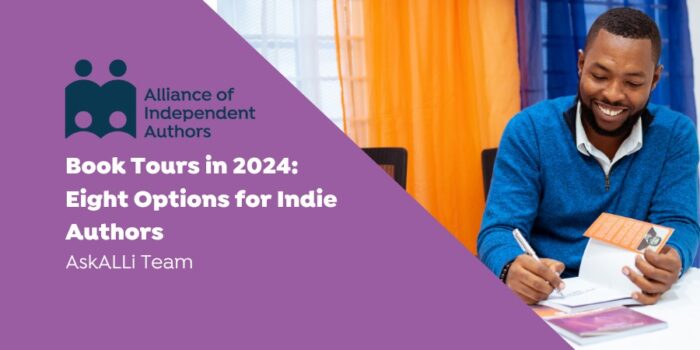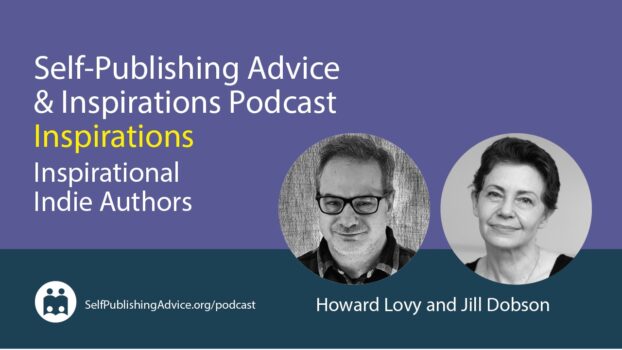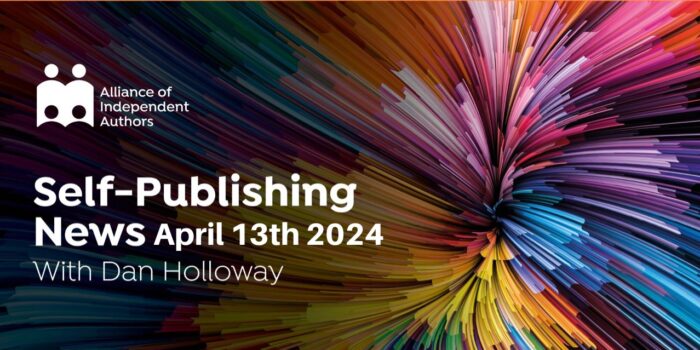The term “hybrid author” has been around for a few years, but ever since a survey of 5,000 authors by Digital Book World and Writer’s Digest revealed that hybrid authors tend to be the most satisfied and most successful group of authors[1], the interest in and buzz around hybrid authors has been intense.
As an agent and digital manager whose agency works with a number of talented and successful hybrid authors, including NYT Bestselling and #1 Kindle Bestselling author Catherine Ryan Hyde (more on Catherine’s hybrid path can be found in this recent Kirkus article [https://www.kirkusreviews.com/features/best-selling-writer-chooses-hybrid-publishing-path]), I’d like to share a few thoughts on the benefits and challenges of exploring more than one publishing channel, and on the changing role of agents.
What is a ‘Hybrid Author'?
A “hybrid author” is an author who has published with a traditional publisher and has also self-published.
Authors with a range of publishing backgrounds and experiences fall into this category, from traditionally published authors now self-publishing (perhaps to have greater creative control or a greater share of royalties), to self-published authors now traditionally publishing (perhaps to reach bookstores more effectively or broaden their readership). Some hybrid authors may have switched entirely; others may release future work both ways.
For the purposes of this post, my focus will be on hybrid authors who plan to publish titles both traditionally and independently, deciding on a project-by-project basis: the most hybrid of the hybrids.
The Benefits of Being a ‘Hybrid Author':
Most articles about hybrid authors include the phrase “the best of both worlds,” and indeed, the benefits of being a hybrid author are significant. Many of these benefits are well documented in surveys, articles and interviews, and at our agency, we’ve seen them firsthand with our hybrid clients.
As an example, one of the first self-published titles Catherine Ryan Hyde released in North America with our agency’s help was When I Found You. It sold over 100,000 copies in a year, and was subsequently sold by Catherine’s agent (my wonderful colleague Laura Rennert) to Amazon Publishing, which then doubled sales in the next year. Catherine continues to release titles through Amazon Publishing and independently with our agency’s help, and regularly sees her titles skyrocket up the Kindle bestseller charts.
In general, hybrid authors often enjoy greater creative control over self-published titles and over the scope of their career since they have more control over what to publish, when, and how. They may also have more financial flexibility and higher overall income, partly because they can release more titles, and partly because they benefit from both advances on traditional titles and immediate earnings and higher royalty rates on self-published titles. They have access to professional editorial feedback and to other traditional publishing benefits like professional cover artists, significant distribution to bookstores, established marketing systems, reviews and awards, and (for children’s lit) greater school/library reach. It is also more likely that they will sell subrights such as film rights, foreign rights, audio rights, etc. than other self-published authors.
In addition, pricing control over their self-published work can help drive sales to their entire bookshelf and help introduce new readers to their work. They also have access to two strong, vibrant communities of authors, with a variety of perspectives and experiences. Many also get hands-on experience promoting their self-published titles which can only help in promoting all their books more effectively, and they have a greater chance of finding a readership for riskier, more unusual work that traditional publishers might not be interested in.
Building an audience for self-published work is also often easier when an author has already been traditionally published, since he or she may have a readership in place, some name recognition, and some additional credibility for readers still hesitant to purchase self-published work. Conversely, successfully building an audience for a self-published book may show a traditional publisher that an author knows how to sell his or her work and strike a chord with readers. (However, failing to successfully build an audience through self-publishing could be a hurdle in finding a traditional publishing partner.)
The Challenges of Being a ‘Hybrid Author’:
Clearly, there are significant benefits to being a hybrid author, but hybrid authors also have to deal with many of the challenges of both publishing paths, as well as some challenges that are unique to their situation.
There are a lot of moving parts to a hybrid author’s career, and hybrid authors must manage many different relationships simultaneously while staying up-to-date and informed in more than one area of the industry.
Just to begin, they must coordinate with publishers to manage pub dates and marketing efforts and capitalize on promotional opportunities for all of their titles. They must handle all the business details of self-publishing, which amounts to running a small business. Helping readers find and purchase their entire body of work may also be a challenge and requires careful strategic thought, especially when titles may be available in different formats and through different distribution channels. Hybrid authors also constantly make decisions about which projects are right for which publishing path and for the current market, as well as developing long-term career strategies. The most successful hybrid authors are constantly promoting, especially if they have a deep backlist. Crucially, they need to stay informed and up-to-date on all new options and best practices for both publishing paths, and perhaps most importantly, they must also find the time to write and continue to grow as writers, so that they maintain both the quality of their work and their author brands, and have enough work to satisfy all their publishing relationships.
In other words, being a successful hybrid author is very rewarding, but it is also a tremendous amount of work.
Do ‘Hybrid Authors' need Agents?
This is a lot like asking if you need someone to do your taxes. The answer varies greatly depending on your individual needs, preferences, and circumstances. With self-publishing and even with traditional publishing, anyone can go it alone and some people do with great success. However, depending on an author’s strengths, interests, time management skills, goals, and career complexity, an agent may be enormously helpful.
Many challenges of being a hybrid author may be offset by a good agent relationship, especially when the agent is informed and open-minded about all of the publishing options available to authors today and can offer support on
the self-publishing as well as traditional publishing side.
the self-publishing as well as traditional publishing side.
The biggest benefit of having an agent is that it can help free up authors to focus on their writing and on the parts of the process they truly enjoy. In addition to editorial feedback and market expertise (which can be especially valuable to those self-publishing), agents can help coordinate with publishers and manage relationships. Many agents have contacts and relationships at self-publishing distributors that authors don’t, so agents can often help troubleshoot more effectively or bring additional marketing support to self-published titles. Agents may also be able to take the business details and vendor coordination off authors’ hands, and help authors figure out where to focus their marketing efforts as well as how best to position their work. Most importantly, agents can help authors take a holistic view of their careers and strategize long-term goals, which is especially important for hybrid authors.
Since hybrid authors are usually informed, flexible, and comfortable thinking outside the box, the best agents for them will share these characteristics. Many agents today have individualized, collaborative strategies for working with their hybrid author clients and are comfortable exploring creative approaches to licensing a right or managing a property.
For all authors, not just for hybrid authors, the decision to partner with an agent is an individual one, and may not be the best course for everyone. It depends greatly on the author and his or her goals and interests, and the agent and his or her approach.
When Everyone is “Hybrid”…
Some have used the term “hybrid agents” to refer to agents who are creative about rights management and flexible about how they work with hybrid author clients. I can’t help but wonder if soon we might all be hybrid, and if (to borrow from The Incredibles) when we’re all hybrid, no one will be. In other words, all of the relatively new options for publishing may soon be fully integrated into our idea of what it means to publish, and the approach that now makes someone a hybrid author or a hybrid agent may no longer be seen as something unusual and special, but rather as a common publishing strategy.
[1]From Jeremy Greenfield's “The Rise of ‘Hybrid Authors' Who Have Self-Published and Had Publishers” (http://www.pbs.org/mediashift/2013/09/the-rise-of-hybrid-authors-who-have-self-published-and-had-publishers/)





Thanks for reading, all. It’s an exciting time, and I whole-heartedly agree about following Catherine Ryan Hyde’s blog!
I missed this session but so agree with your take on Hybrid authors. Writers should follow Catherine’s blog-she’s amazingly supportive of writers….RE: As an example, one of the first self-published titles Catherine Ryan Hyde released in North America with our agency’s help was When I Found You. It sold over 100,000 copies in a year, and was subsequently sold by Catherine’s agent (my wonderful colleague Laura Rennert) to Amazon Publishing, which then doubled sales in the next year. Catherine continues to release titles through Amazon Publishing and independently with our agency’s help, and regularly sees her titles skyrocket up the Kindle bestseller charts.
Interesting perspective. It’s great to be writing in a time with so many options.
Thanks for the great info!
I love where this is going. Giving hope and much needed inspiration to keep at it!